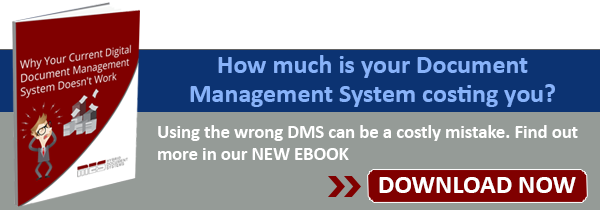
When establishing record retention guidelines for businesses, it is important to consider two factors: the laws governing your record retention and the technology that you can use to manage it. That being said, here are the guidelines for record retention that every business in Canada should follow:
Create a system wherein your records cannot be accidentally lost
Even the most efficient paper filing system can result in lost documents. Make sure that you are using a digital document management system to at least back documents up.
Make sure that permanent records are immediately set aside
One of the worst things that can happen while you are managing records is for a member of your team to accidentally destroy records that you are required to retain by law. To avoid this, immediately set aside and place into long-term storage any documents that fall into the following categories:
- Audtitor's reports
- Annual financial statements
- Stock records
- Licenses and patents
- General ledger
- Mortgages and deeds
- General receipts
Depending on your industry, there may be additional permanent record categories. Also, the same logic applies to documents with any sort of retention requirements. For example, all tax documents must be held for possible auditing for at least 6 years. These should have a separate file indicating this.
Implement an efficient record management solution
This is one of the most important record retention guidelines for businesses that you can follow. Trying to effectively manage your records should not be done manually. This will cause your company to waste a lot of time and make unnecessary mistakes. Instead, make sure to use efficient record management software that will allow you to quickly digitize, categorize, index and manage documents.
Modern record retention is not a local consideration
For many business, properly adhering to all laws and record retention guidelines for businesses requires you to look beyond the laws of Canada alone, and instead consider global regulations. This is because millions of Canadian companies have a presence beyond our borders. If your company is one of these millions, then is critical that you know how regulations are similar and different in varying regions. In most regions, for example, electronic versions of documents require to be retained by law are acceptable. However, many countries in Latin and South America, which are still developing their digital capabilities, only accept hard copies of documents; this can make sharing documents more difficult in some cases.
Other important facts about record retention guidelines across the globe that you should be aware of include the following:
- Record retention guidelines for the United States and Canada are very similar.
- The European Union has a front-end approach to records containing personally identifiable information. This means, for example, that as soon as you have finished using a customer's personal information for a business function such as a credit check, you must safely destroy it.
- The Soviet Union has a universal record retention system that breaks nearly every type of record into thousands of groups with specific retention requirements. Few of their laws are industry-specific.
- Many Latin American countries impose specific limitations on how long records can be kept.
- In many countries in the Middle East and North Africa, there are very few laws creating requirements for specific record retention periods.
Do not make record retention more difficult than it has to be
At face value, record retention for businesses can seem like a complicated, difficult endeavor. However, when your team has a strong set of guidelines that clarify record retention laws and make use of the technology available to make things easier, you can more effectively keep things in order.

